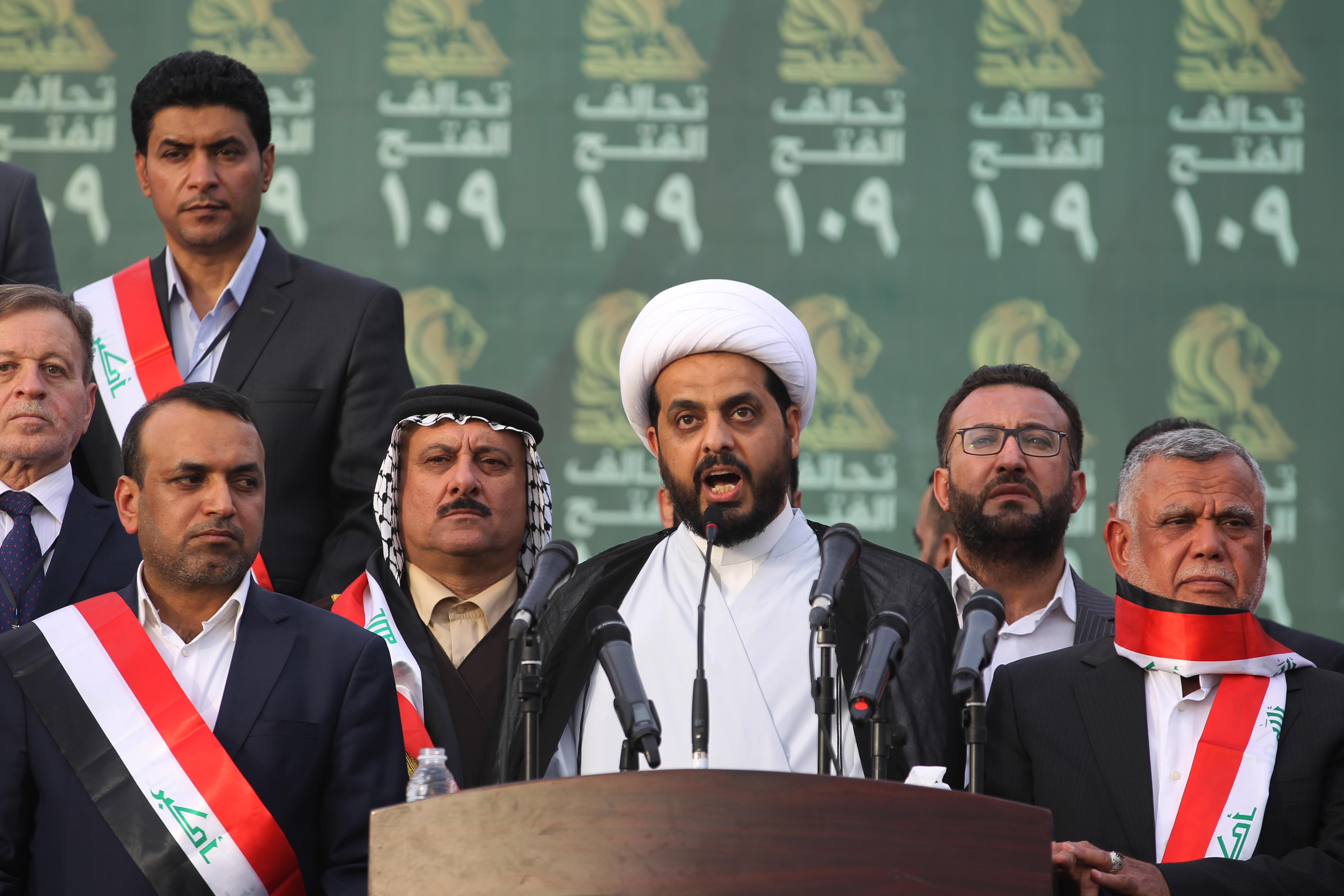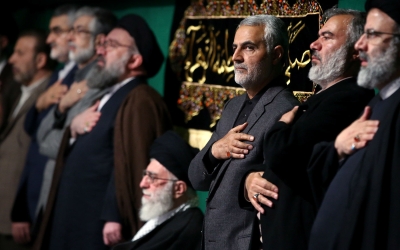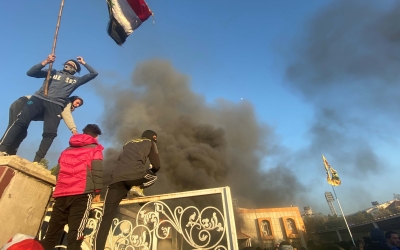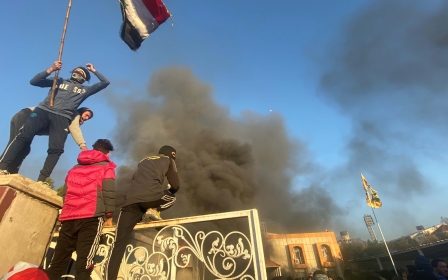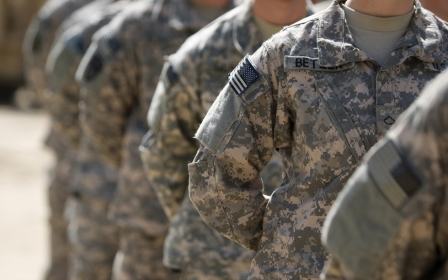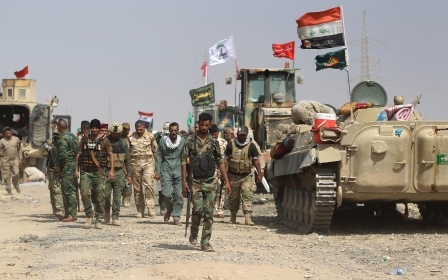Can the Iraqi government expel US forces from Iraq?
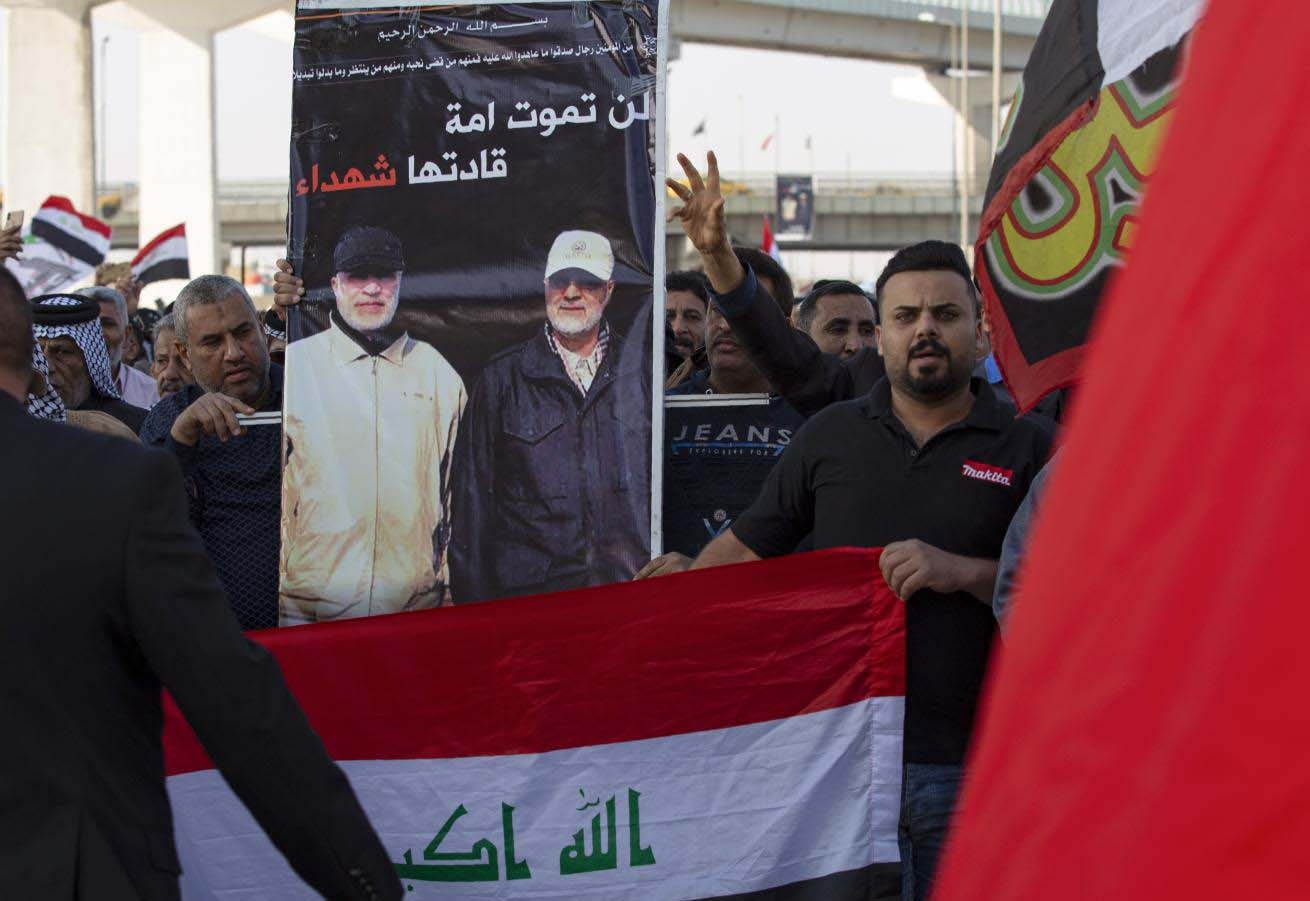
Iraq's parliament has once again put forward a motion calling for the expulsion of foreign forces from Iraq, an event which has gained a ritualistic familiarity in the country's politics.
Parliament voted in favour of the motion - despite the absence from most Sunni and all Kurdish lawmakers - but a quirk of Iraqi politics means parliament-drafted legislation is non-binding and usually without effect.
However, unlike previous attempts to remove US forces from Iraq, the climate in the country has become increasingly febrile following the assassination of Iranian commander Qassem Suleimani and militia leader Abu Mahdi al-Muhandis last week.
With outgoing Prime Minister Adel Abdul Mahdi expressing his sympathy with the position - and US President Donald Trump threatening sanctions in retaliation - what are the likely chances of American forces actually be removed from the country?
Who is (and isn't) calling for expulsion?
New MEE newsletter: Jerusalem Dispatch
Sign up to get the latest insights and analysis on Israel-Palestine, alongside Turkey Unpacked and other MEE newsletters
Virtually the whole Shia political establishment in Iraq has called for the expulsion of US forces.
Hadi al-Ameri, the leader of the Badr Organisation, and Qais al-Khazali, leader of Asa'ib Ahl al-Haq, have been among the most vocal proponents of the measure - an unsurprising move, since they command the most powerful Iran-backed groups in Iraq.
Ameri on Friday called on "all national forces to unify their stance in order to expel foreign troops whose presence has become pointless in Iraq" while Khazali warned that the "price for the blood of the martyred commander Abu Mahdi al-Muhandis is the complete end to American military presence in Iraq".
Muqtada al-Sadr, the highly influential Shia cleric and vocal critic of Iranian influence in Iraq, has also supported the removal of US troops, criticising the parliamentary decision for not going further.
"I consider this a weak response, insufficient against American violation of Iraqi sovereignty and regional escalation," he said on Sunday, in a statement.
He said that American troops needed to be expelled in a "humiliating manner".
Others political figures in Iraq, however, have been lukewarm or actively opposed to the move.
In particular, Kurdish politicians have regularly stated their belief that US troops need to remain in Iraq for the foreseeable future as a deterrence against militant groups.
Though he has yet to comment on the most recent vote, Kurdistan Regional Government (KRG) President Nechirvan Barzani reiterated this position in March.
In the meantime, US Secretary of State Mike Pompeo said that after a conversation with Prime Minister Masrour Barzani on Friday, he had been assured of "continued, close cooperation" between the two sides.
Parliamentary speaker Muhammad al-Halbousi, a Sunni, also expressed concern over the move.
In a video of the parliamentary session in which the vote was taken, Halbousi was heard warning about the financial repercussions for Iraqis if they move to expel US forces.
"One of the steps that the international community may take is to stop financial dealings with Iraq, and I hope that it will be clarified to the deputies, we may not be able to fulfill our financial obligations to our citizens at any moment," he said.
Who can order the expulsion?
The law passed by parliament calls on the Iraqi government to rescind a 2014 request for assistance, due to "the end of military operations in Iraq and the achievement of victory" and calls for the end of any foreign troops on Iraqi soil and to prohibit their use of Iraq's "land, airspace or water for any reason".
Constitutionally, draft laws that do not originate in the Iraqi cabinet are non-binding, even if they are approved by parliament.
As such, the decision to expel foreign troops from Iraq would rest with the executive, specifically the cabinet of Adel Abdul Mahdi, who has backed the parliamentary vote.
The current government is officially a caretaker government, after Abdul Mahdi announced his resignation in December following pressure from anti-government protests. This limits the actual powers the government has to enact legislation.
However, the original invitation in 2014 for coalition forces to aid Iraq in fighting the Islamic State (IS) group was not based on parliament-approved legislation, but rather on an exchange of diplomatic letters between the Iraqi foreign minister and foreign officials.
The decision to remove the forces would not require the government to draft legislation for parliament and the government could potentially withdraw the invitation unilaterally.
Sajad Jiyad, managing director of the Bayan Centre, told Middle East Eye that, therefore, if Abdul Mahdi wanted to immediately action the vote taken in parliament, he could do so.
“It would just be an exchange of notes from Iraq’s foreign ministry to the foreign ministries of other countries and it could be just a quick process,” he explained.
What happens next?
Even if a legal method for the expulsion of American troops isn't forthcoming, the leaders of armed groups have called for active resistance against the US presence in Iraq.
Khazali and Sadr have both hinted at an armed response to the killing of Suleimani and Muhandis - with Sadr reactivating his powerful Saraya al-Salam militia - as rockets have continued to hit US interests across the country.
Kata'ib Hezbollah, the group formerly led by Muhandis, warned on Saturday that Iraqi security forces should stay outside a 1km radius of US bases in the country.
Following the passage of a new election law, drafted as a means of placating Iraqi protesters, new elections could be on the horizon, leaving the question of troop withdrawal potentially to a new government.
However, the last elections in Iraq took around six months to lead to the formation of any government, so this would kick any movement far down the road, during which time violence between armed groups in Iraq and US forces could potentially increase.
Despite the apparent ratcheting up of tensions, Jiyad said there was still scope for negotiation and for cooler heads to prevail.
“[Abdul Mahdi] could make his intent clear to have this discussion with the Americans and the other countries, but not formally ask them to leave yet, so give them enough time to consider options to de-escalate and improve the situation,” said Jiyad. “He could give them enough notice so that perhaps he will not have to ask them to leave, that they could then decide ‘well if the Iraqi government is going to ask us to leave, then we’ll just leave.’”
“You can’t imagine that if the Iraqi government is going to take these steps that these countries would want to remain in a hostile environment where they’re not wanted any more.”
Middle East Eye delivers independent and unrivalled coverage and analysis of the Middle East, North Africa and beyond. To learn more about republishing this content and the associated fees, please fill out this form. More about MEE can be found here.


